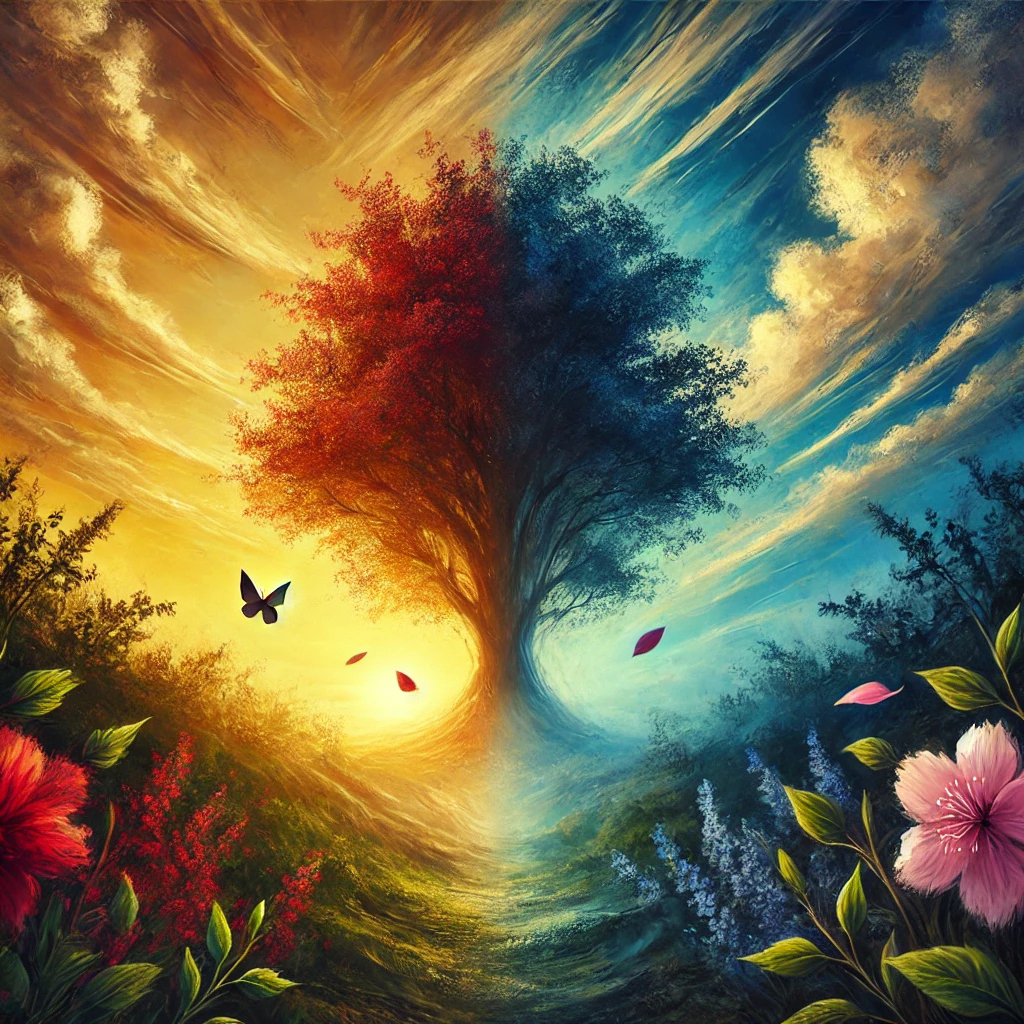Hello there, dreamers and deep thinkers,
Today, I want to talk about Grief and Love.
Grief and love are intricately woven together, inseparable in their essence. To love deeply is to open oneself to the eventuality of loss. When we grieve, it is love that fuels the ache, reminding us that the bond we shared with another was profoundly significant. This connection between grief and love is both universal and deeply personal, rooted in the human experience across cultures and philosophies.
The Dual Nature of Love and Loss
Love is expansive, binding us to others with a sense of purpose, intimacy, and belonging. It is a force that unites, grows, and creates. Yet, it is in its very fullness that love contains the potential for grief. The psychologist Sigmund Freud once described grief as the cost of attachment: “We find a place for what we lose, but we never replace it.” In this sense, grief is not a symptom of weakness or despair but a testament to how much someone or something mattered to us.
Love’s Vulnerable Contract
From the moment we love, we enter into a silent contract with the universe. This contract accepts that nothing in life is permanent. Every moment shared, every memory created, becomes a treasure—and also a vulnerability. Philosopher Kahlil Gibran articulates this beautifully in The Prophet:
“The deeper that sorrow carves into your being, the more joy you can contain.”
This duality speaks to the profound truth that our capacity to grieve mirrors our capacity to love. To grieve deeply is evidence of having loved deeply.
Grief as a Transformative Process
Grief is often viewed as something to “get over.” However, grief is not a problem to be solved but a process to be lived. According to psychiatrist Elisabeth Kübler-Ross, grief moves through stages—denial, anger, bargaining, depression, and acceptance. While this model has been widely discussed, it’s important to note that grief is not linear; it is as unique as the love that preceded it.
Holistic Perspectives on Grief
Different cultures and traditions offer holistic approaches to understanding grief:
Spiritual Viewpoints:
In many Eastern traditions, grief is seen as a way of maintaining connection with the departed soul. Rituals like ancestor worship or meditation remind us that the bond of love transcends physical separation.
Scientific Insights:
Neuroscience reveals that grief activates the same areas of the brain as physical pain. This is why loss can feel physically excruciating. Yet, over time, the brain begins to rewire, finding new pathways for emotional healing while keeping the essence of the lost connection intact.
Ecological Analogies:
Nature teaches us that loss is a part of renewal. Forests grow richer when nourished by what has passed; rivers are carved deeper through erosion. Similarly, grief reshapes us, creating new emotional depths where wisdom and empathy can thrive.
Love and Grief as Teachers
Grief often leaves us with questions about the purpose of love. Why love, if it inevitably leads to pain? The answer lies in the transformative power of love itself. Love is not diminished by grief; rather, it is amplified. Through grief, we learn the fragility of life, the importance of presence, and the necessity of vulnerability.
Finding Meaning in the Pain
Writer Joan Didion describes grief as an act of defiance against loss: “Grief turns out to be a place none of us know until we reach it.” In that unfamiliar place, we discover resilience and a renewed sense of purpose. Love, when revisited through the lens of grief, teaches us to cherish what remains—to embrace life more fully and to honor the memories of what was lost.
Grief and Love in Harmony
Grief is the shadow of love. It is not an enemy but a companion that walks alongside us, sometimes heavy, sometimes light. It reminds us of the depth of our humanity and the profound connections that define us. Love gives meaning to our lives, and grief, in its wake, ensures that meaning is never forgotten.
In honoring both, we embrace the fullness of the human experience—a dance of joy and sorrow, of connection and loss. To love is to grieve, and to grieve is to love. Together, they form a sacred cycle that shapes the very essence of who we are.
—
By understanding the depth of grief and love, we not only honor those we’ve lost but also deepen our capacity for compassion, connection, and healing.
Stay curious. Stay strong.
With love,
April
Cognitive Psycho




